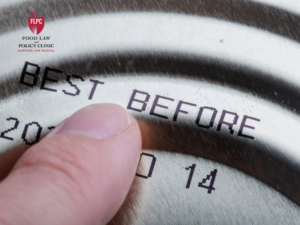by Kristie Gurley (JD ’15)
It is widely acknowledged that consumption of sugar-sweetened beverages (SSBs) has a negative impact on public health—sodas and juices directly contribute to the obesity epidemic in America, and they can be especially harmful for children (those who drink at least one serving of SSBs per day have 55% increased odds of being overweight or obese).[1] However, how to decrease consumption of SSBs is widely disputed. Some municipalities have considered adopting a tax on SSBs that would deter the purchase of SSBs, and thus the consumption of SSBs. This past November, Berkeley, California, became the first city to pass a “soda tax,” imposing a one-cent-per-ounce tax on all soft drinks.
While the Berkeley soda tax represented an historic victory for anti-SSB voters (they prevailed over a $10 million opposition campaign), it was unclear whether a one-cent-per-ounce tax on SSBs could make a difference at the point of consumption. In late January, voters witnessed an immediate impact: two local “Dollar Tree” stores pulled sodas from their shelves entirely. For a store stocking only products that can be sold for under $1, the tax—which is levied on distribution companies—raised the price of SSBs above the Dollar Tree threshold. Randy Guiler, Dollar Tree’s Vice President of Investor Relations, said the store could no longer cover the tax’s costs on beverages with a one-dollar price tag.[2] The Dollar Tree locations in Berkeley currently stock only water and fruit juices.
The impact the soda tax will have on more traditional stores remains unclear. Will an increase in price by 12 cents, 16 cents, or 68 cents (the number of ounces in a 2 liter bottle of soda) be enough to dissuade consumers from purchasing the SSBs? Will stores respond to decreased consumption by removing the SSBs from their shelves entirely?
While we can expect the economic consequences of the soda tax to lead to some decrease in consumption, Berkeley will be making additional efforts to improve consumer awareness about the harms of SSBs. The SSB tax ordinance includes provisions to create a 9-person Panel of Experts to make recommendations on how to use the tax revenue collected. The Panel will likely recommend a variety of educational efforts to further raise awareness about the health risks posed by SSBs, specifically targeting children.
For cities that have considered but failed to enact soda taxes (such as Richmond and San Francisco) or soda size limits (such as New York), the impact of the soda tax and revenue could reinvigorate future efforts to take on SSBs. As the Berkeley ordinance begins to have an impact beyond the Dollar Tree stores, their model for reducing SSB consumption—both through economic and educational initiatives—will surely be closely watched.
————–
The views reflected in this blog are those of the individual authors and do not necessarily represent those of the Center for Health Law & Policy Innovation or Harvard Law School. This blog is solely informational in nature, and not intended as a substitute for competent legal advice from a licensed and retained attorney in your state or country.

Health Law & Policy, Commentary
Cuts to the Federal Workforce and Medicaid: What’s Happening and What Can Advocates Do? – Health Care in Motion
March 12, 2025